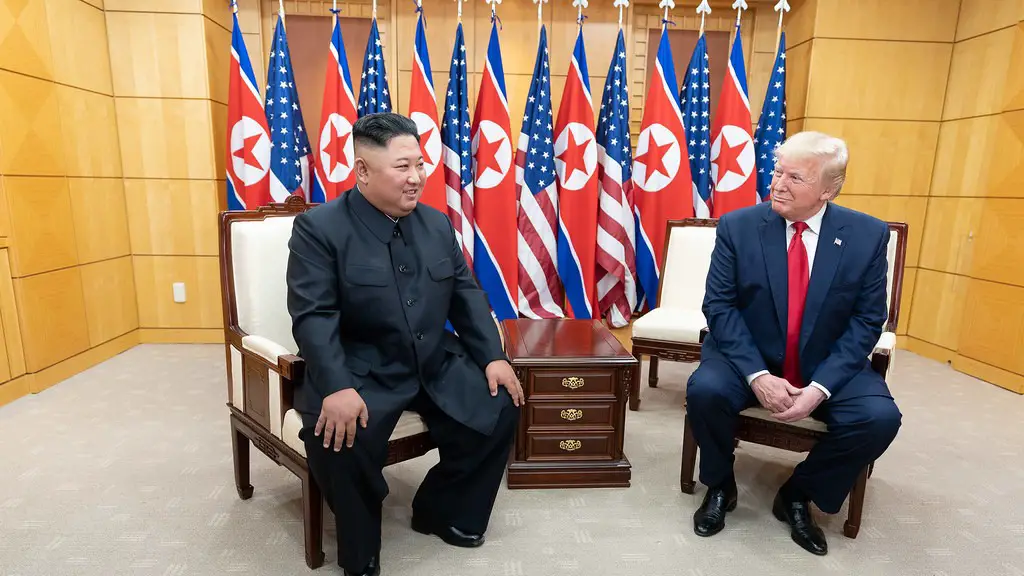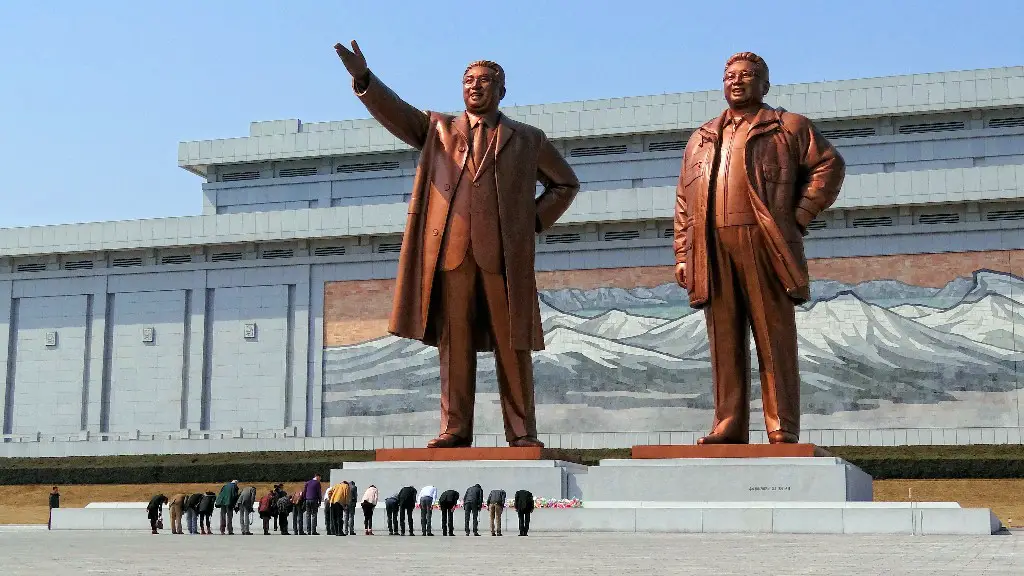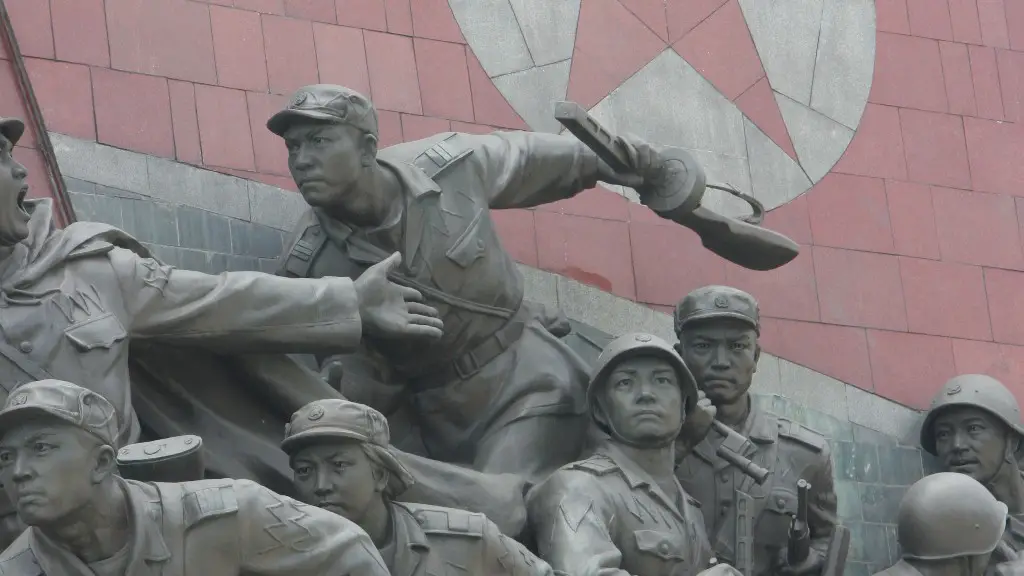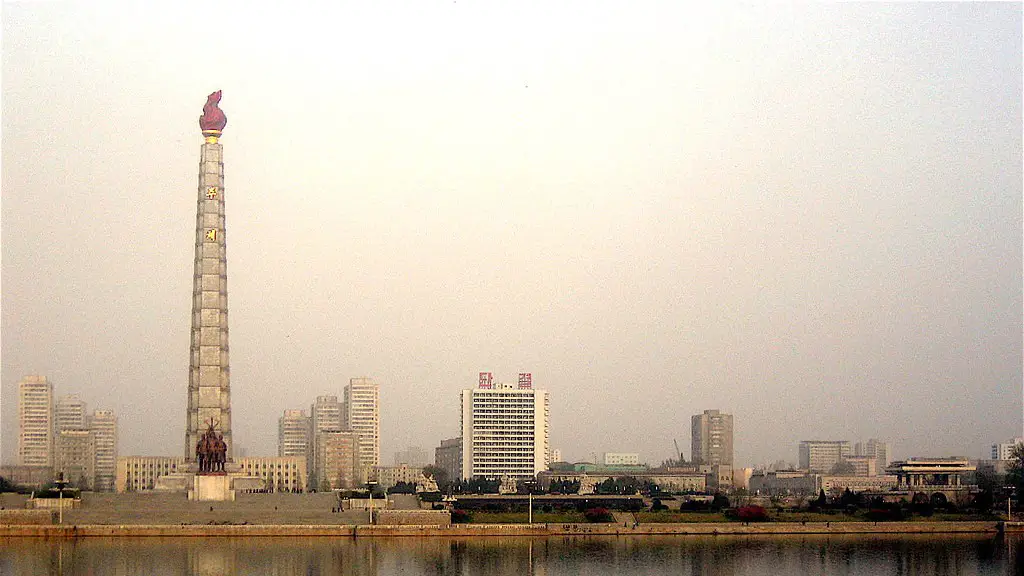It’s no secret why North Korea is bad, but the reasons may be more complex and far-reaching than many people realize. North Korea has suppressed its citizens’ rights and freedoms for decades, limiting access to basic necessities, isolating its people from the outside world, and disregarding its obligations to the international community. This article will explore the ways in which North Korea’s government is bad, the impact its policies have had on the country’s citizens, and the consequences of North Korea’s actions on the global stage.
Background & Humanitarian Impact
The North Korean government has a long history of denying its citizens basic rights and freedoms. The country has been ruled by the Kim family since it was established in 1948, and its dictatorial policies have been marked by a near-total disregard for human rights. The government strictly controls all aspects of life, including where people can travel, what kind of information they can access, and which activities they can take part in. This means that many North Koreans lack access to basic necessities like food, water, and medicine, and are forced to live in poverty.
For the majority of North Korean citizens, the government’s policies have had profound and devastating effects. Humanitarian organizations such as the United Nations estimate that 18 million people in the country are in need of food aid, and that many do not have access to essential medications or clean water. In addition, the government has also been accused of arbitrarily detaining and imprisoning thousands of people, and it has been cited by human rights organizations for its use of torture and inhumane conditions in its prisons.
International Crises & Military Activity
North Korea has long been a source of tension for the international community. The country’s nuclear weapons program, in particular, has been the cause of a great deal of fear and anxiety. North Korea has repeatedly violated international agreements by conducting nuclear tests, and the country’s missile tests have caused considerable consternation among its neighbors. The risk of nuclear war has been a key area of concern for the international community, and this has led to a number of diplomatic efforts to try to bring North Korea back into compliance with international standards.
In addition to its nuclear ambitions, North Korea’s military activity has been a major source of tension for the international community. The country has a long history of aggression towards its neighbors in South Korea and Japan, and it has even been accused of carrying out cyber-attacks on other countries. North Korea’s military is one of the highest in terms of personnel, funding, and weaponry, and this has led to increased concerns about its ability to threaten the safety and security of other countries in the region.
Economic & Political Isolation
North Korea’s diplomatic isolation has been a source of serious concern for many countries around the world. The government has been accused of failing to abide by its commitments under international agreements, and its relations with other countries have often been tense. This has led to a situation where North Korea has had little to no economic or political support from countries outside of its own.
As a result of its isolation, North Korea has been largely cut off from the global economy. This has resulted in a severe economic crisis, as the country lacks access to the resources and technology it needs to thrive. In addition, North Korea’s government has long been accused of corruption and mismanagement, and its economic policies have led to widespread poverty and deprivation.
International Repercussions
North Korea’s policies and actions have had serious repercussions for the international community. The country’s violation of human rights and disregard for international agreements have been met with strong condemnation from governments around the world. In addition, the country’s nuclear weapons program and military activity have caused considerable anxiety and instability in the region, and the economic crisis in North Korea has had a direct impact on the global economy.
In response to North Korea’s actions, the international community has taken a number of measures. These include economic sanctions and other forms of pressure, as well as diplomatic efforts to try to bring the government back into compliance with international standards. Despite these efforts, North Korea’s government has shown little inclination to change its policies or take steps towards ending its isolation.
Human Rights Abuses
North Korea’s human rights record has been one of the major sources of criticism from the international community. The government’s oppressive policies have led to widespread suffering and deprivation for its citizens, and its use of torture and arbitrary detention have been strongly condemned. In addition, the government has been accused of a wide range of other abuses, including restricting access to information, denying citizens’ rights to free expression and association, and forcibly conscripting citizens into its military.
The government’s abuse of human rights has had a devastating effect on its citizens, with many living in fear and poverty due to its policies. Despite the international community’s attempts to pressure North Korea to end its human rights violations, the country’s government has so far refused to make any changes to its policies.
Global Security &mInternational Obligations
North Korea’s activities and policies have had profound implications for global security. Its nuclear weapons program and military activity have been a source of serious concern for many governments around the world, and its violation of international agreements have threatened the security and stability of the region. Additionally, the government’s refusal to accept its obligations under international agreements has put North Korea at odds with the rest of the world.
North Korea’s policies and actions have put the country in direct conflict with the international community. Its disregard for human rights and its failure to abide by its commitments have been a source of considerable concern. As a result, many countries have pushed for an end to North Korea’s isolation, as well as for the country to take steps towards ending its egregious violations of human rights.
Deteriorating Relations & Its Threats To Regional Stability
North Korea’s relationship with its neighbors and with the international community has been strained for decades. The country’s aggressive policies towards its neighbors and its violations of international law have led to increasing tension and instability in the region. In addition, its military activity and nuclear ambitions have been a source of great concern for many governments around the world.
North Korea’s actions have caused a great deal of fear and anxiety among its neighbors, and have led to an overall deterioration in relations. This has resulted in increased instability in the region, and has had a negative effect on the global economy. Although the international community has made significant efforts to try to reach an agreement with North Korea, the country’s government has not been willing to alter its policies or cooperate with other countries.
Consequences & International Pressure
North Korea’s actions and policies have had serious consequences for the international community and its citizens. Its aggression towards its neighbors and its nuclear ambitions have led to increased tension and instability in the region, and its disregard for human rights has had devastating effects on its citizens. The international community has responded to North Korea’s policies with a range of measures, including economic sanctions, diplomatic efforts, and other forms of pressure.
Despite these measures, North Korea has so far refused to make any meaningful changes to its policies. This has led to a situation where the government continues to flout international law, act aggressively towards its neighbors, and trample on the rights and freedoms of its citizens. Until North Korea is willing to change its policies, the international community must remain vigilant in applying pressure and demanding an end to its unacceptable actions.




